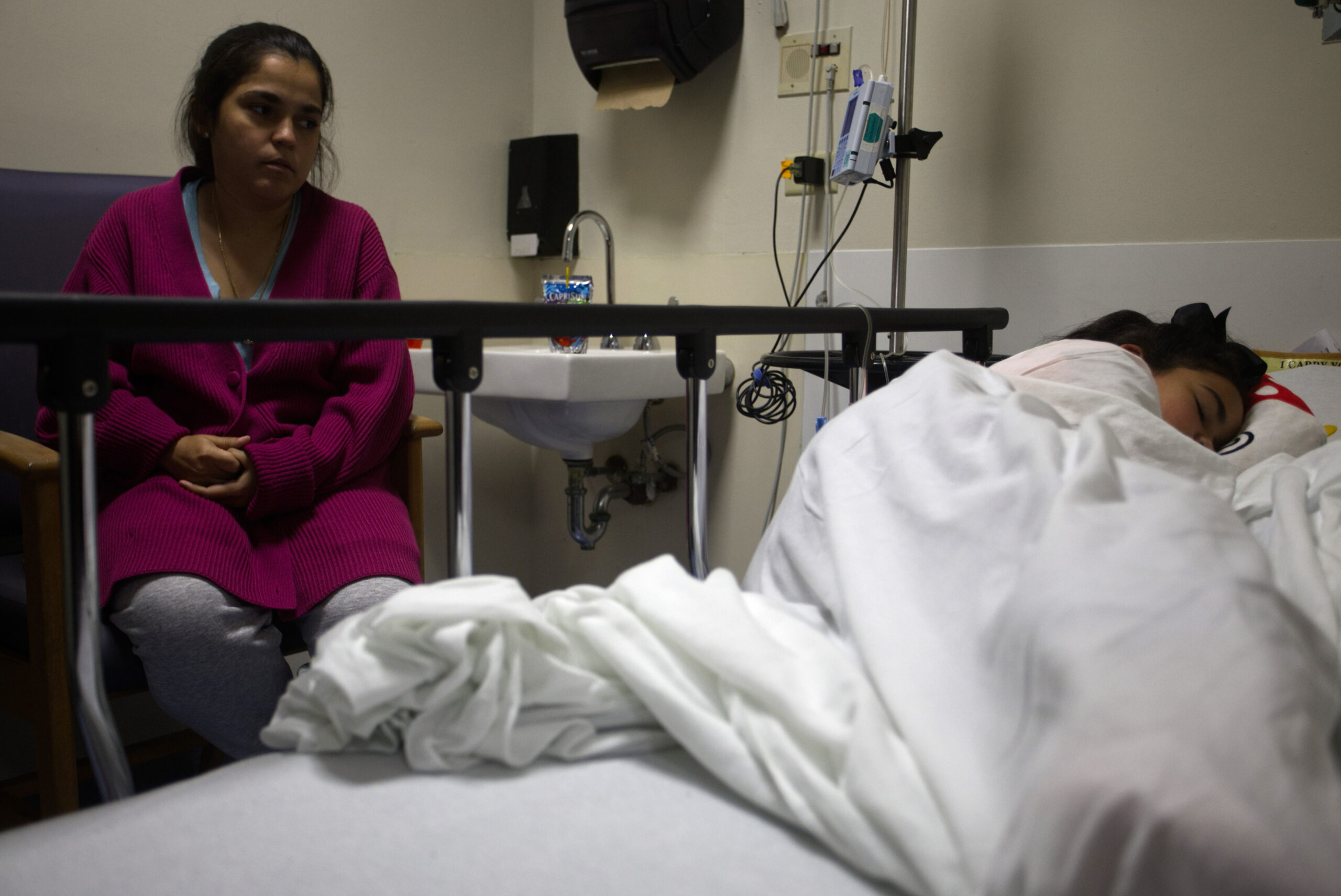San Juan – At 9 years old, Puerto Rican Anaia Salinas is fighting dengue fever in a bed at the Auxilio Mutuo Hospital in San Juan, where an unprecedented study is being conducted to identify how immune protection is created against this disease that has Puerto Rico in a state of emergency.
Like Salinas, more and more children and adults are contracting this disease transmitted by the Aedes aegypti mosquito, which also carries chikungunya, yellow fever and Zika, which has skyrocketed globally.
“In children, the disease tends to be much more common than in adults due to exposure to mosquitoes,” explains to EFE Dr. Diego Sainz de la Peña, head of the Department of Pediatrics at the hospital, who together with the president of the medical faculty and infectious disease specialist, Jorge Bertrán, researches this disease.
Both health professionals have been in charge of a study for 12 years that originated in southern Puerto Rico and that since 2018 has had the ‘Sentinel Enhanced Dengue Surveillance System (SEDSS)’, a surveillance system for infections that cause fever.
“From this study there is a sub-study that we have already started to see how long the dengue antibodies last in these patients and the relevance is that we can detect this earlier” and determine the diseases that may begin to emerge in the population, says Sainz de la Peña.
This pioneering analysis, which will be presented in November at a conference on emergency diseases in New Orleans (USA), will help health professionals predict “what diseases we will be seeing in the near future,” said the pediatrician.
Bertrán emphasizes that it is a process that will take “months and will be monitored after they are being analyzed in the hospital.”
Concern about rising temperatures
“Global warming is bringing this mosquito to areas where it did not exist before, and Puerto Rico is the place in the United States where there is the most dengue,” said Sainz de la Peña, who explained that there are currently dengue types 2 and 3 on the island, of the four serotypes that exist.
The US Centers for Disease Control and Prevention (CDC) reported a total of 2,241 cases in the United States in the first half of 2024, an increase compared to 2023, considering that 3,036 were recorded throughout last year.
Of the total number of cases so far in 2024, 1,498 have been recorded in Puerto Rico, where local authorities declared a state of emergency in March and recently extended it until the end of the year after recording record numbers of this condition and two deaths.
“It is a disease that affects approximately 20% of patients who suffer from severe dengue and who need hospitalization, and dengue patients die,” says Sainz de la Peña.
Mosquito population control
Since 2016, a total of 65 people have been working on various projects to reduce the mosquito population at the Vector Control Unit, a program of the Puerto Rico Science, Technology and Research Trust in a collaborative agreement with the CDC.
“What we do is very important. We integrate various pillars such as community outreach, installing surveillance traps to find out what the mosquito population is in each of the communities and, after obtaining scientific data such as all this information, what we do is work to control this vector,” emphasizes the unit manager Joanelis Medina.
The facility has several rooms equipped to examine the mosquitoes they capture, which are kept in cubicles with a mesh screen to prevent them from escaping. Researchers carry out PCR tests to identify viruses and other tests to determine the effectiveness of insecticides.
“This year we have collected more than 168,000 mosquitoes. Due to the current epidemic on the island, we are collecting almost three times the amount we normally collect during a year,” he says from the laboratory where they analyze the samples obtained from the traps for monitoring mosquitoes.
Medina said that so far this year they have collected 100 mosquitoes with dengue in Puerto Rico, twice as many as in previous years, so he urged the population to reduce possible breeding grounds in the home.
By Esther Alaejos
Continue reading:
Dengue epidemic declared in Puerto Rico
Puerto Rico Department of Health on alert for new variant of mpox (monkeypox)
U.S. Census Bureau to open federal statistical research center in Puerto Rico
